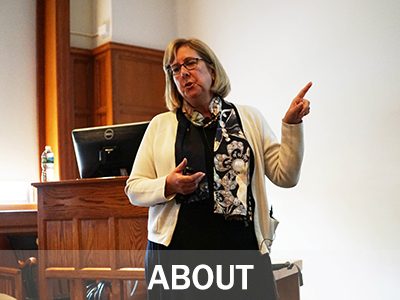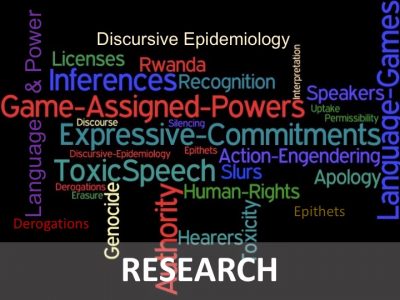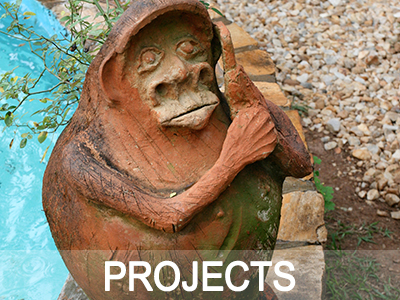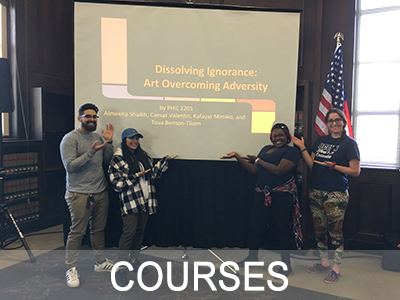 Exterior views of Storrs Center on Oct. 22, 2015. (FJ Gaylor/UConn Photo) (FJ Gaylor/UConn Photo)
Exterior views of Storrs Center on Oct. 22, 2015. (FJ Gaylor/UConn Photo) (FJ Gaylor/UConn Photo)
 A philosophy 150 class meets outdoors in front of Ratcliffe Hicks Hall.
A philosophy 150 class meets outdoors in front of Ratcliffe Hicks Hall.
Welcome
My research concerns issues at the intersections of philosophy of language with social and political philosophy. I focus on the ways that linguistic practices influence or shape social justice or facilitate injustice, how these practices enhance or violate human rights.
During 2018-2019, I was a Fellow in Residence at the UConn Humanities Institute, to write a book on Toxic Speech (under contract with Oxford University Press). This project uses concepts and theories from philosophy of language and social epidemiology, developing an epidemiology of discursive toxicity. This grows from recent work on the role of language in genocidal development, execution and in its aftermath. You can read an interview about the project in The Epidemiology Monitor, Feb 2018.
My work on questions about the power of linguistic practice to shape social conditions that make genocide possible has a special focus on the Rwandan Genocide of the Tutsi in 1994.
Someday, I hope to return to a collaborative project with Alisa Carse, of Georgetown's philosophy department, on "emergent forgiveness", which we think is the main sort possible after grave wrongs. We had to set it aside for a while (because of life!) but it remains a live concern to us both.
In addition, I have published on articles on metaphor, storytelling, hate speech, racist discourse, apology, feminist issues in philosophy of language, including but not limited to pornography, and a little bit about Nietzsche.



